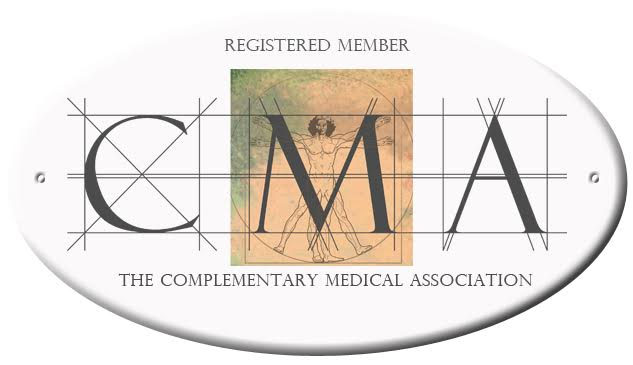Introduction
“All disease begins in the gut.” – Hippocrates
Understanding the common gut health issues that many people face daily is helpful in maintaining our overall well-being. While chronic diseases like IBS and IBD often grab the headlines, many of us experience everyday gut problems that we ignore or normalize. These issues can significantly impact our health and quality of life if left unaddressed. This post will explore these common gut health issues, their causes, symptoms, the importance of early detection, and how to remedy this.

Understanding Common Gut Health Issues
Gut health issues can range from minor discomforts to serious conditions. It’s important to recognize that even minor digestive problems can be signals of underlying imbalances in your gut. By understanding these issues and their causes, you can take proactive steps to improve your gut health and overall well-being.
Common Gut Health Issues
Daily Digestive Discomforts: Many people experience occasional bloating, gas, and indigestion, often dismissing these symptoms as ‘normal’. These minor issues, however, can indicate underlying gut imbalances. Persistent discomfort can lead to more severe problems that ripple throughout the body-mind system if not addressed.
Irregular Bowel Movements: Constipation and diarrhea are common issues related to poor gut health. Regular bowel movements are crucial for removing waste and toxins from your body. Irregularities in this process can cause significant discomfort and health issues over time.
Food Sensitivities and Intolerances: Symptoms like stomach cramps, bloating, and diarrhea after eating certain foods can signal food sensitivities or intolerances. Common offenders include dairy, gluten, certain packaged and highly processed foods, additives, meats, sugars, and certain FODMAPs (which we will discuss later in the series). These reactions often indicate that your gut is struggling to process these foods efficiently.
Fatigue and Low Energy: Poor gut health can contribute to chronic fatigue and low energy levels. When your gut is not functioning correctly, nutrient absorption can be compromised, leading to deficiencies that affect your energy levels and overall vitality.
Skin Issues: Skin problems like acne, eczema, and rosacea can be linked to gut health. The gut-skin connection highlights how inflammation and imbalances in the gut can manifest as skin issues. Addressing gut health can often lead to improvements in skin conditions.
Mental Health Concerns: The gut-brain axis is a critical connection that explains how gut health impacts mental well-being. Anxiety, depression, and mood swings can all be related to gut health. The production of neurotransmitters like serotonin in the gut influences our mood and mental health far more than we’ve been taught.
General Advice: While chronic diseases like IBS, IBD, and leaky gut syndrome are serious and require medical attention, it’s essential to address common daily health issues related to poor gut health. Most of these can be addressed at home through simple lifestyle changes. But if you experience persistent and chronic symptoms, consider consulting an Ayurvedic doctor or physician for proper diagnosis and treatment.
Causes of Gut Health Issues
Diet and Nutrition:
- A diet high in processed foods, sugars, and unhealthy fats can contribute to gut health problems. These foods disrupt the balance of good and bad bacteria in your gut.
- Food intolerances and allergies can also lead to gut health issues, causing inflammation and discomfort.
- Food combinations are a lesser known culprit. There are quite a few, but one simple example is anything dairy with anything acidic.
Stress and Lifestyle:
- Chronic stress negatively impacts gut health by altering gut motility and increasing inflammation. Managing stress through mindfulness and relaxation techniques is crucial.
- Lack of sleep and a non active lifestyle can also affect gut health. Regular physical activity and adequate sleep are essential for a healthy gut. We’ll delve deeper into this when we explore the Gut-Brain Connection
Medications and Antibiotics:
- Certain medications, especially antibiotics, can disrupt the gut microbiome by killing beneficial bacteria. It’s important to include probiotic and prebiotic rich foods in our daily diet to maintain a strong gut microbiome. A wide variety and abundance of fresh fruits, vegetables and whole grains are powerful allies.
Environmental Factors:
- Exposure to toxins, pollutants, and chemicals can affect gut health. These substances can alter the gut microbiome and lead to various health issues.
- The hygiene hypothesis suggests that excessive cleanliness and lack of exposure to microbes can lead to a weakened immune system and increased susceptibility to autoimmune and gut health issues. I remember running around barefoot in the grass and sand as a kid, coming home with ‘dirty’ fingernails at the end of every day. These days, we all seem to live in a world of persistent and chemically sanitized spaces.
Symptoms to Watch For
Digestive Symptoms:
- Bloating, gas, diarrhea, constipation, and abdominal pain are common digestive symptoms indicating gut health issues.
Systemic Symptoms:
- Fatigue, skin problems, headaches, and joint pain can be signs of underlying gut health problems.
Emotional and Mental Symptoms:
- Anxiety, depression, and mood swings can be related to gut health, highlighting the importance of the gut-brain axis.
Importance of Early Detection and Treatment
Prevention is Better Than Cure: Early detection and intervention are crucial in preventing chronic gut health issues and their rippling effects. Lifestyle changes and dietary adjustments can help manage and prevent these problems before they become severe.
Professional Help: If you experience persistent and chronic gut health issues, seek professional medical advice. Ayurvedic doctors and physicians can diagnose and treat chronic gut health problems, helping you to restore balance and improve overall health.
Conclusion
Understanding and addressing common gut health issues is vital for overall well-being. By recognizing the symptoms and causes of these issues, you can take control of your gut health and improve your quality of life.
Prioritize your gut health for a healthier, happier life and embrace the journey to a thriving gut environment.
Pay attention to your gut health and take proactive steps to address any issues. Small changes in diet and lifestyle can significantly impact your well-being.
Share your experiences and questions about gut health issues in the comments below or on our social media platforms. And let’s support each other on this journey!
Research and Further Reading
To deepen your understanding of gut health, here are some recommended resources:
- Book:
- “The Microbiome Solution: A Radical New Way to Heal Your Body from the Inside Out” by Dr. Robynne Chutkan. Link: https://www.amazon.com/Microbiome-Solution-Radical-Heal-Inside/dp/1583335765
- Articles and Research Papers:
-
-
“10 Signs of an unhealthy gut”: https://www.frederickhealth.org/news/2021/july/10-signs-of-an-unhealthy-gut/
-
8 Surprising things that can harm your gut: https://www.healthline.com/nutrition/8-things-that-harm-gut-bacteria
-
The Microbiome in Health and Disease from the Perspective of Modern Medicine and Ayurveda: https://www.ncbi.nlm.nih.gov/pmc/articles/PMC7559905/
-
“Understanding Irritable Bowel Syndrome (IBS)” – Mayo Clinic. Link: https://www.mayoclinic.org/diseases-conditions/irritable-bowel-syndrome/symptoms-causes/syc-20360016
-
“Understanding Inflammatory Bowel Disease (IBD)”: https://www.mayoclinic.org/diseases-conditions/inflammatory-bowel-disease/symptoms-causes/syc-20353315
-
“Leaky Gut Syndrome: What Is It, and What Does It Mean for You?” – Harvard Health. Link: https://www.health.harvard.edu/blog/leaky-gut-what-is-it-and-what-does-it-mean-for-you-2017092212451
- How to reduce inflammation and take control of your gut health: https://www.healthline.com/health/digestive-health/reducing-inflammation-gut-health
-





